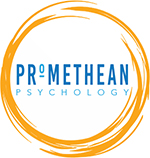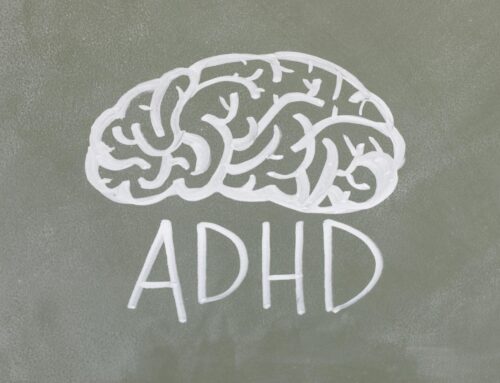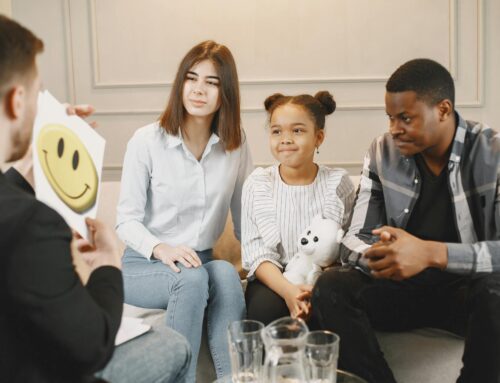Without fail, I am asked every week by a parent for a book recommendation on a particular topic related to childhood mental health. From helping an anxious child become braver to managing severe behavioral problems, parents are understandably hungry to learn more about how they can navigate the complicated role of parenting. Unfortunately, not all resources are created equal. Over the years, I’ve become increasingly frustrated with the number of “snake oil” books with authors touting baseless or pseudoscientific ideas. For someone outside the field, it can be difficult to tell which resources are research-informed, and which belong on the baloney shelf at the grocery store. To that end, I’ve compiled a list of my favorite books for parents on a variety of topics. All are books that I have read, have a strong scientific basis, and offer realistic and practical guidance for parents.
ADHD
Taking Charge of ADHD (2020) by Russell Barkley, PhD
Dr. Sam’s comments: When it comes to ADHD, there is no one I trust more than Russell Barkley. He has dedicated his entire career to studying ADHD in children and adolescents, so he knows a few things! Dr. Barkley does a wonderful job in this book at demystifying ADHD for parents and offering logical steps on how to best support a child with ADHD.
Adolescence
Brainstorm: The Power and Purpose of the Teenager Brain (2015) by Daniel Siegel, MD
Dr. Sam’s comments: Having a hard time understanding your teenager? You’re not alone, and this book does a great job at explaining adolescence in a clear and relatable way. It’s organized so that the chapters alternate between parents and teens as the intended reader. I’ve only read the parent chapters and, frankly, cannot see most teens willingly reading the sections written with them as the target audience. So, I might just stick to the parent sections without pressuring your teen to read the teen sections.
Anxiety in Children
Freeing your Child from Anxiety (2008) by Tamar Chansky, PhD
Dr. Sam’s comments: This is arguably one of my favorite books for parents on any topic in the domain of childhood mental health. Dr. Chansky lists literally hundreds of practical, evidence-informed strategies parents can use to support their anxious child.
Breaking Free of Child and Adolescent Anxiety and OCD (2021) by Eli Liebowitz, PhD
Dr. Sam’s comments: Dr. Liebowitz offers a unique approach by offering parents the chance to take an introspective look into how they can adjust their own behaviors to best support their anxious child. If you’re a parent and feel as though your child’s anxiety or OCD is holding your family hostage, this is a must read!
Behavioral Issues: Non-compliance, Tantrums, Meltdowns, Aggression and More
The Kazdin Method for Parenting the Defiant Child (2009) by Alan Kazdin, PhD
Dr. Sam’s comments: Great book for parents dealing with challenging child or adolescent behaviors. Dr. Kazdin offers a straightforward approach as he lays out simple, digestible steps.
The Explosive Child (2021) by Ross Greene, PhD
Dr. Sam’s comments: Dr. Greene provides a structured guide for how parents can collaborate with their child to solve ongoing problems. It’s best for older children and adolescents. My only qualm is Dr. Greene’s tendency to denounce the strategies described in the Kazdin Method (see above). Both approaches have solid research support behind them and complement each other nicely, so I think he is a bit out of line critiquing the strategies presented in Kazdin’s book.
Your Defiant Teen (2013) by Russell Barkley, PhD and Arthur Robin, PhD
Dr. Sam’s comments: This is a great book for parents of teens with behavioral issues. It’s similar in approach to the Kazdin Method but geared exclusively toward parents of teenagers. The first author, Dr. Russell Barkley, is widely regarding as one of the leading experts in the relationship between ADHD and behavioral issues in adolescence.
Depression in Children
Depression and Your Child (2008) by Deborah Serani, PsyD
Dr. Sam’s comments: What I appreciate most about this book is the way Dr. Serani describes childhood depression with such compassion. She also does an amazing job at using her own personal story to illustrate how a parent can support their depressed child.
Helping Teens who Cut (2017) by Michael Hollander, PhD
Dr. Sam’s comments: If you have a child who self-injures (e.g., cutting), I cannot recommend this book enough. I read this book arrogantly assuming I was familiar with all the relevant research on adolescents and self-harm. Gee was I was wrong. I credit this book for not only changing the way I work with teens who cut, but how I guide and support parents of these struggling teens. The author, Dr. Michael Hollander, does a great job at explaining self-injurious behaviors in teens while offering concrete suggestions on what to do to best support your teen.
Eating Disorders
Help your Teenager Beat and Eating Disorder (2015) by James Locke, MD and Daniel Le Grange, PhD
Dr. Sam’s comments: There are few concerns more difficult for parents to endure than watching their teen struggle with an eating disorder. This book does an outstanding job at describing to parents not only what an eating disorder is, but how to respond in a supportive and helpful manner.
Parenting in General
Good Enough Parenting (2022) by Tim Cavell, PhD and Lauren Quetsch, PhD
Dr. Sam’s comments: A practical, engaging, and down-to-earth read. There are many books out there that cover the broad topic of parenting. In my opinion, this one takes the cake for using a satisfying blend of research, pragmatism, and personal anecdotes from the authors.
The Coddling of the American Mind (Chapters 6-12; 2018) by Greg Lukianoff and Jonathan Haidt, PhD
Dr. Sam’s comments: This is one of my favorite books for a variety reasons. The authors discuss how parents have a natural tendency to shield their child from stressful situations, which can prevent a child from developing the skills necessary for independent adulthood. Chapters 6-12 discuss the reasons behind this trend and offer recommendations for parents.
Parenting Made Complicated by David Rettew, MD
Dr. Sam’s comments: Each chapter in this book covers a specific topic related to parenting from picky eating, sleep training, praise, screen time, divorce and more. Dr. Rettew is a master at summarizing research in a fascinating and digestible way. This is a particularly good book for parents of younger children.
Resilience
The Optimistic Child (2007) by Martin Seligman, PhD
Dr. Sam’s comments: I’ll admit this book is a bit dry, but Martin Seligman is one of the most prolific researchers on childhood mental health. He shares some great insights into what it truly means to teach children how to harness the power of resilience.
School Refusal
Getting your Child to say “Yes” to School (2007) by Christopher Kearney, PhD
Dr. Sam’s comments: Feel like it’s a battle to get your child to school? Then this book is a must read. Dr. Kearney breaks down the common reasons children refuse to go to school and offers parents a readable roadmap for getting their child back to school.
Screens, Screens and Screens
Screenwise (2016) by Devorah Heitner, PhD
Dr. Sam’s comments: While this does not cover the topic of social media as thoroughly as iGen (described below), Dr. Heitner does a wonderful job at synthesizing all the research on screens and offering helpful, bite-size recommendations.
iGen: Why today’s super-connected kids are growing up less rebellious, less Happy and completely unprepared for adulthood (2017) by Jean Twenge, PhD
Dr. Sam’s comments: Dr. Twenge has done some of the seminal research on social media and children and describes her findings in a fun and engaging way. She also offers some guidelines for parents around social media and teenagers.






